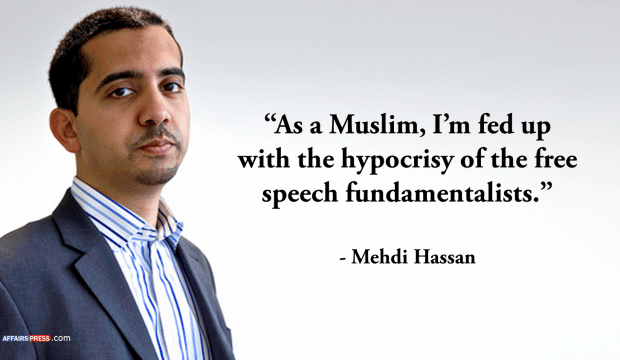You may be concerned about Facebook and other companies restricting what may be communicated and who may communicate on the companies’ social media platforms, as well as those companies limiting the ability of people to easily see the posts of people and organizations they follow. The Intercept writer Mehdi Hasan is concerned about something else. He thinks Facebook is doing too little to suppress speech, especially speech critical of Islam and Muslim people.
In a Saturday The Intercept editorial, written as if it is a letter to Facebook Chief Executive Officer Mark Zuckerberg, Hasan urges Zuckerberg to implement further speech suppression at Facebook. This is needed, Hasan argues to silence hateful or misleading speech regarding Islam or Muslim people, both by Americans and by people overseas. To be clear, this is speech by people who have created accounts at Facebook, not speech by Facebook itself.
Of course, once you accept that one religion or group of people is worthy of such special protection from speech, the natural course is to continue adding to the list. Ultimately, little room may be left for communicating about many important matters.
And don’t be surprised if additional speech suppression by social media companies works in the favor of elites in governments and big businesses. Indeed, Facebook has already outsourced some of its speech suppression activities to the governments- and big businesses-funded Atlantic Council.
I wrote in November of 2018 about some of the speech suppression activities of Facebook and other social media companies, including how such activities have affected the Ron Paul Institute in particular. You can read that article here.



